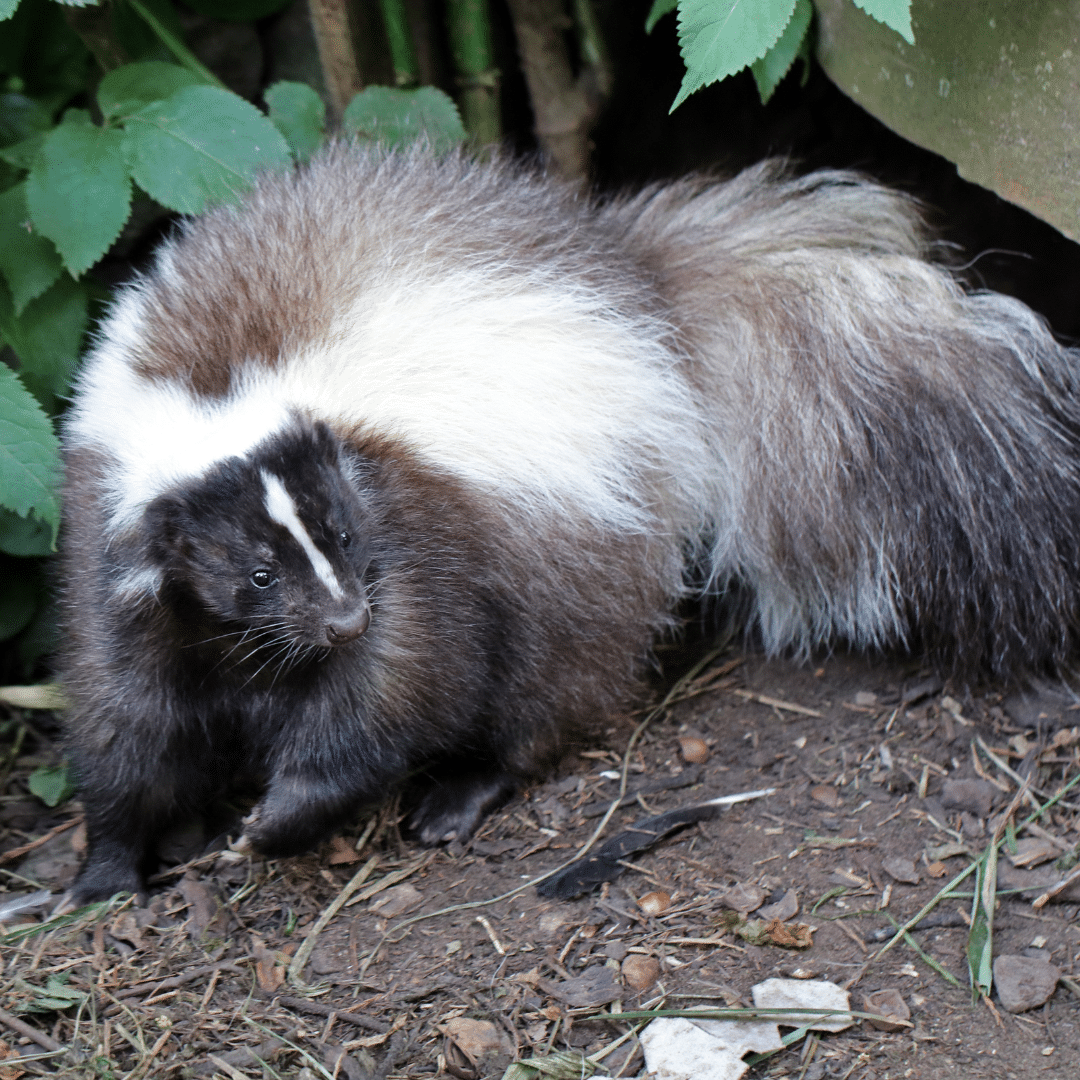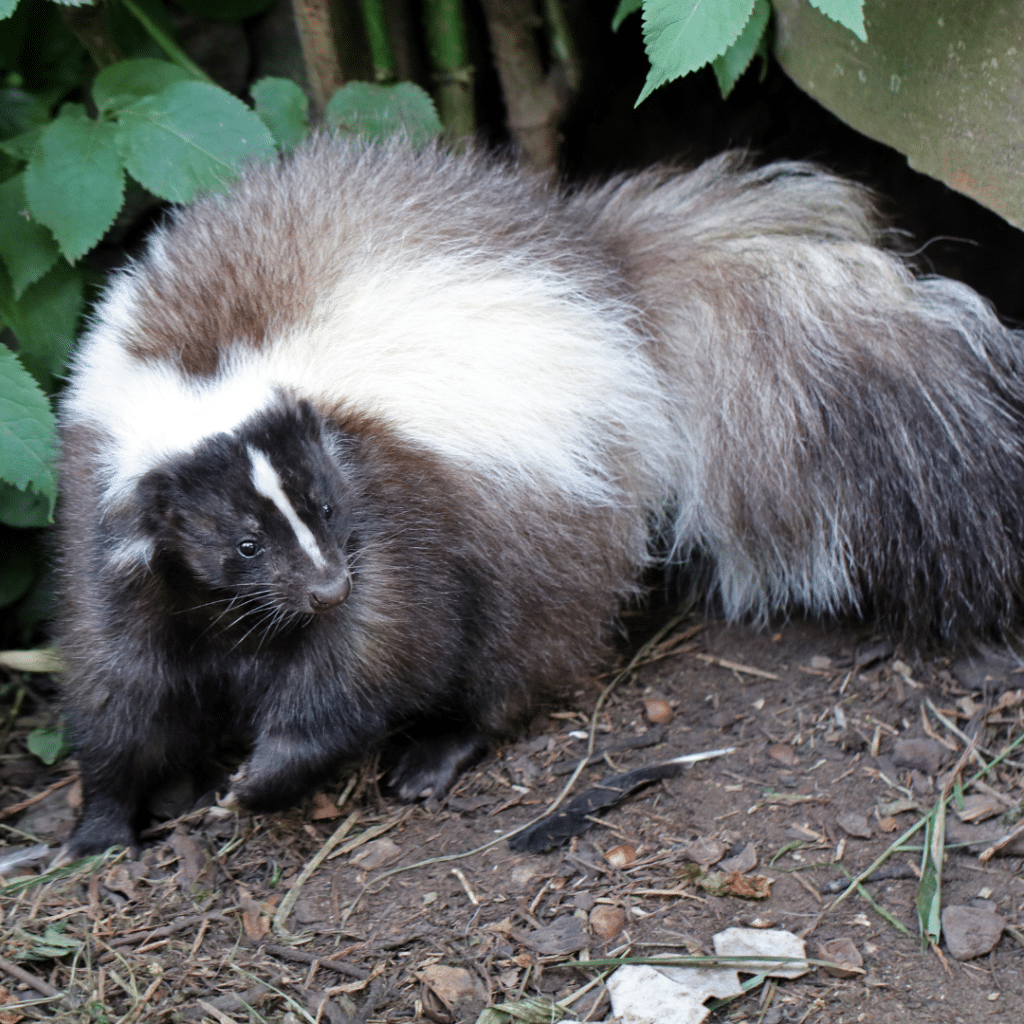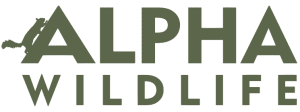
At Alpha Wildlife, we understand that discovering skunks under the house can be unsettling. These nocturnal creatures, while beneficial in controlling insect populations, can cause significant damage and pose health risks when they take up residence under your home. Our guide will help you identify the signs of a skunk infestation and provide detailed steps to address the issue effectively and humanely.
Understanding Skunk Behavior
Skunks are burrowing animals that prefer safe, dark, and quiet areas to raise their young and protect themselves from predators. Underneath porches, decks, crawl spaces, and sheds are ideal spots for skunks to create their dens. These areas offer protection and are often close to food sources, making your home an attractive site for skunks.
Signs of a Skunk Infestation
1. Strong, Offensive Odor
One of the most unmistakable signs that you have skunks under the house is a persistent, musky odor. This smell, which results from a skunk’s defensive spray, can permeate your home and linger for weeks. If you notice an intense odor, especially at night or in the early morning, it’s likely that skunks are nearby.
2. Small Holes Around the House
Skunks dig for grubs and other insects, leaving numerous small holes about 2-3 inches in diameter. These holes are typically shallow and cone-shaped, appearing in your lawn, garden, or near the foundation of your house. Unlike other digging animals, skunks create neat and organized holes.
3. Skunk Tracks
If you find tracks in soft soil or muddy areas around your property, they could be from skunks. Skunk tracks are about 1.5 to 2 inches long and show five toes on both the front and hind feet, with long claws visible on the front tracks. These tracks are often found near potential entry points under your house.
4. Electrical, Insulation, and Ductwork Damage
Skunks can cause significant damage as they access their dens. They might chew through electrical wires, insulation, and ductwork, leading to increased energy bills, potential fire hazards, and costly repairs. If you notice torn insulation, chewed wires, or unusual wear on ductwork, skunks could be to blame.
5. Scratching Noises at Night
Being nocturnal, skunks are most active at night. If you hear scratching, rustling, or other noises under your porch, deck, or in your crawl space, it is likely that a skunk or another nocturnal animal is present. These noises can become more frequent and louder if the skunks feel threatened or are moving around more frequently.

Skunks Under The House FAQs
How can I tell if there are skunks under my house?
Look for signs such as strong, offensive odors, small holes around the house, skunk tracks, electrical and insulation damage, and scratching noises at night.
What attracts skunks to my house?
Skunks are attracted to food sources such as insects, small mammals, fruits, vegetables, and garbage. They also seek out safe, dark, and quiet areas for shelter.
Is it safe to handle a skunk infestation on my own?
Handling a skunk infestation can be challenging and risky due to the potential for bites, scratches, and spray. It’s often best to contact professional wildlife removal services.
How do I prevent skunks from returning?
Seal entry points, remove food sources, and maintain your property by cleaning up debris and overgrown vegetation. Consider using motion-activated lights to deter nocturnal animals.
What should I do if I get sprayed by a skunk?
If you get sprayed by a skunk, wash the affected area with a mixture of hydrogen peroxide, baking soda, and dish soap. Avoid using water initially, as it can spread the oil and intensify the smell.
Can skunks cause damage to my property?
Yes, skunks can cause significant damage by chewing through electrical wires, insulation, and ductwork. They can also dig up lawns and gardens in search of food.
Cities We Get Calls About Skunks Under The House
At Alpha Wildlife, we receive numerous calls about skunks under the house from various locations. Here are the six main markets where skunk infestations are particularly common and where we offer our professional wildlife removal services:
1. Nashville, Tennessee
In Nashville, Alpha Wildlife Nashville is often called to address skunks under houses with our expert skunk control services. Known for its vibrant music scene and sprawling suburbs, Nashville frequently encounters wildlife issues, including skunks. Residents often find skunks under their houses, especially in neighborhoods with plenty of gardens and outdoor spaces.
2. Memphis, Tennessee
In Memphis, Alpha Wildlife Memphis‘s skunk control services are essential. With its blend of urban and suburban environments, Memphis sees a high incidence of skunk infestations. The city’s layout, with many older homes and green spaces, provides numerous hiding spots for skunks.
3. Knoxville, Tennessee
Alpha Wildlife Knoxville frequently handles skunk removal. Situated near the Great Smoky Mountains, Knoxville homes often deal with wildlife, including skunks. The city’s suburban areas, with their wooded lots and ample hiding places, are prime locations for skunks to establish dens.
4. Chattanooga, Tennessee
In Chattanooga, Alpha Wildlife Chattanooga’s skunk control expertise is in high demand. Chattanooga’s mix of urban and scenic rural areas makes it a hotspot for skunks. Homes near the outskirts of the city, where nature and residential areas meet, are particularly susceptible to skunk infestations.
5. Charleston, South Carolina
Alpha Wildlife Charleston is well-versed in skunk removal. With its historic homes and lush gardens, Charleston often experiences skunk issues. The city’s humid climate and abundant food sources attract skunks, leading to frequent infestations under houses.
6. Columbia, South Carolina
Alpha Wildlife Columbia provides effective skunk control solutions. Columbia’s combination of urban areas and surrounding forests makes it a prime location for skunks. Residents often call us for help with skunks that have taken refuge under their homes and outbuildings.
In each of these markets, Alpha Wildlife offers comprehensive wildlife removal services to safely and effectively address skunk infestations. Our team of experts is equipped to handle skunk problems with care and professionalism, ensuring the safety and comfort of your home.
Dealing with a Skunk Infestation
At Alpha Wildlife, we recommend a thorough approach to dealing with skunks under the house. Here’s a detailed plan to handle skunks effectively and humanely:
Confirm the Infestation
Before taking action, confirm that skunks are the culprits. Use the signs mentioned above to verify their presence. Setting up a motion-activated camera can also help capture footage of the area and confirm skunk activity.
Humane Removal Methods
- Live Trapping: Live trapping is one of the most effective methods for removing skunks. Use a cage trap baited with foods that skunks find irresistible, such as canned fish or peanut butter. Place the trap near the suspected den entrance and check it regularly. Once captured, release the skunk at least 10 miles away from your home in a suitable habitat.
- Exclusion: Encourage skunks to leave their den by making it inhospitable. Place light and noise deterrents near the entrance. Once the skunk has vacated, seal the entrance to prevent re-entry.
- Repellents: Use commercial skunk repellents that employ natural ingredients to deter skunks from taking up residence. These can be sprayed or scattered around the suspected den.
Professional Wildlife Removal Services
If you are uncomfortable handling skunks or if the infestation is extensive, contact Alpha Wildlife. Our professional wildlife removal services have the tools and experience to safely and humanely remove skunks and prevent future infestations.
Preventing Future Infestations
- Seal Entry Points: Once the skunks have been removed, seal all potential entry points around your house. This includes gaps in the foundation, spaces under decks and porches, and openings in crawl spaces.
- Remove Food Sources: Secure garbage cans, compost bins, and pet food. Also, consider using grub control in your lawn to reduce the insect population that attracts skunks.
- Maintain Your Property: Regularly clean up woodpiles, debris, and overgrown vegetation that can provide cover for skunks. Keep your yard well-lit at night to discourage nocturnal animals.
Health Risks Associated with Skunks
Skunks can pose several health risks to humans and pets. Here are some potential concerns:
- Rabies: Skunks are one of the primary carriers of rabies. If a skunk bites or scratches a person or pet, seek medical attention immediately and report the incident to local health authorities.
- Leptospirosis: This bacterial disease can be transmitted through skunk urine and contaminated water. Symptoms in humans include fever, headache, chills, muscle aches, and vomiting.
- Intestinal Parasites: Skunks can carry parasites such as roundworms and tapeworms, which can be transmitted to pets and humans through contact with skunk feces.
- Skunk Spray: While not a direct health risk, skunk spray can cause temporary blindness and severe discomfort if it gets into the eyes. The smell can also cause nausea and respiratory issues in some individuals.
Have a skunk under the house?
At Alpha Wildlife, we believe that dealing with a skunk infestation requires patience, caution, and sometimes professional help. By understanding the signs of a skunk presence and taking proactive measures to prevent them, you can protect your home and family from the nuisances and potential dangers posed by these nocturnal creatures.
If you suspect a skunk infestation, don’t hesitate to contact us at Alpha Wildlife. We provide effective solutions to remove skunks and prevent them from returning. Remember, while skunks can be beneficial in controlling insect populations, their presence under your house can lead to significant problems that require prompt attention.
